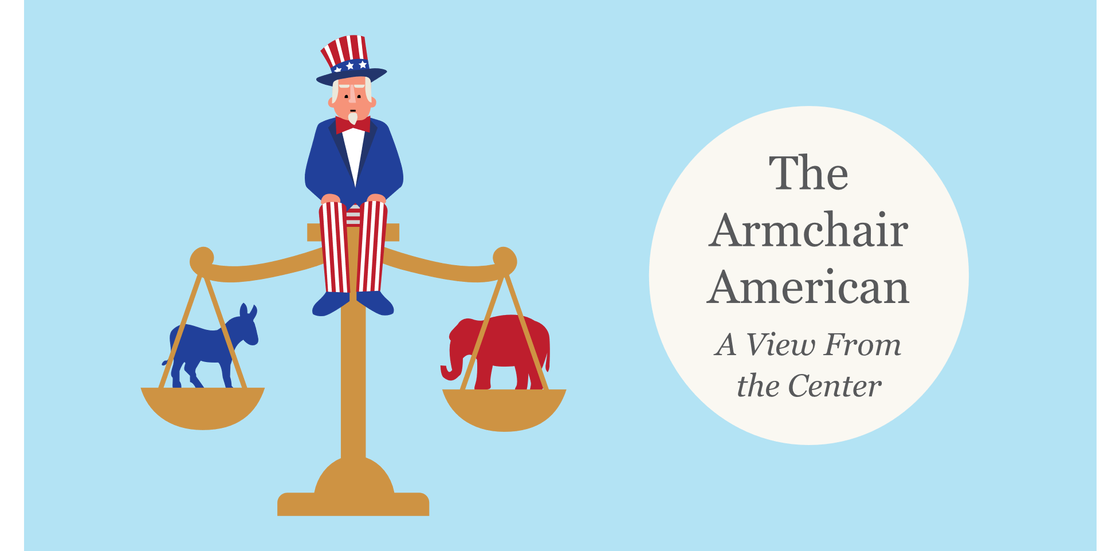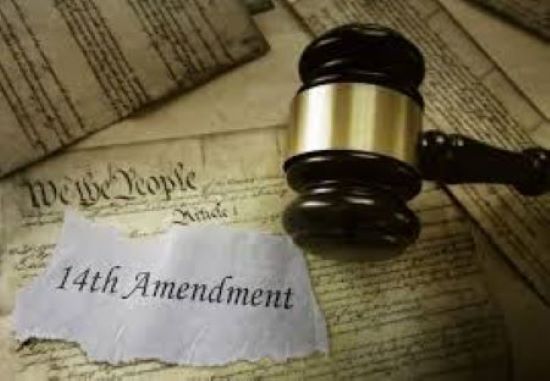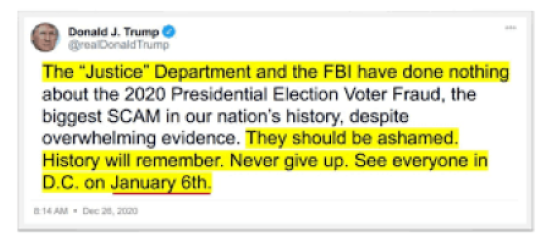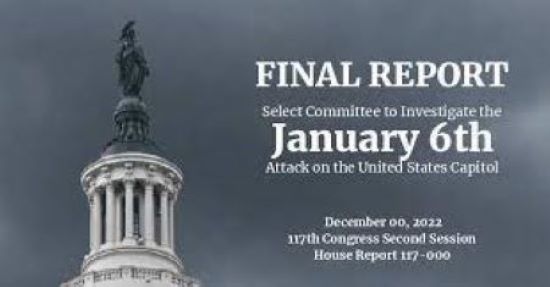|
In the aftermath of the January 6, 2021 attack on the U.S. Capitol, there has been a lot of speculation that Donald Trump’s involvement would disqualify him from ever holding public office again. The legal justification for disqualification is spelled out in Section 3 of the Fourteenth Amendment to the U.S. Constitution. The first legal action to test whether or not Donald Trump can be disqualified under the Fourteenth Amendment took place in a Colorado District Court last week. The nonprofit group Citizens for Responsibility and Ethics in Washington, on behalf of six Colorado voters, filed a lawsuit against Colorado Secretary of State Jena Griswold. The lawsuit was filed to prevent Donald Trump from appearing on Colorado’s Republican presidential primary election ballot and any future election ballot based on his disqualification to hold public office under Section 3 of the Fourteenth Amendment. The lawsuit also seeks to prevent Colorado’s Secretary of State from taking any action that would allow Donald Trump to appear on the ballot. Does the lawsuit in Colorado have any merit, and will it prevent Donald Trump from appearing on the Republican primary ballot? Before we can answer these questions let’s first exam Section 3 of the Fourteenth Amendment to see if it has any application to Donald Trump and the 2024 Presidential election. Section 3 of the Fourteenth Amendment: It was adopted in 1868 in the aftermath of the Civil War to prevent military officers, federal officers, and state officials who served in the Confederacy from holding any future public office. Sometimes referred to as the disqualification clause, Section 3 of the Fourteenth Amendment reads as follows: “No person shall be a Senator or Representative in Congress, or elector of President and Vice-President, or hold any office, civil or military, under the United States, or under any State, who, having previously taken an oath, as a member of Congress, or as an officer of the United States, or as a member of any State legislature, or an executive or judicial officer of any State, shall have engaged in insurrection or rebellion against the same, or given aid or comfort to the enemies thereof. But Congress may by a vote of two-thirds of each House, remove such disability.” Ambiguities Exist: Like many sections of the U.S. Constitution, there is a lot of ambiguity in Section 3 of the Fourteenth Amendment, and its applicability in the aftermath of January 6th is uncertain. After about 1869 there has been very little case law to provide clarity about this section of the Constitution. Some of the issues yet to be resolved include:
Recent Court Action: There was a court case last year in New Mexico which merits mention due to its relevance to January 6th. Couy Griffin, a New Mexico County Commissioner, was convicted of illegally entering the Capitol grounds on January 6, 2021. As a result of his conviction a group of New Mexico voters sued to have him removed from office on the grounds that he violated Section 3 of the Fourteenth Amendment. A state judge agreed and had him removed from office and disqualified him from holding any office in the future. The New Mexico Supreme Court refused to overturn the ruling. Griffin vows to take his case to the U.S. Supreme Court. The removal of Couy Griffin from public office was the only successful case to be brought under Section 3 of the Fourteenth Amendment since 1869. The significance of this case is that it was the first time a judge has formally ruled that the events of January 6, 2021 were an “insurrection”. Applicability to Donald Trump: Donald Trump has called the use of the Fourteenth Amendment to keep him off any election ballot simply “election interference”. In a recent social media post, he stated that “almost all legal scholars have voiced opinions that the 14th Amendment has no legal basis or standing relative to the upcoming 2024 Presidential Election”. Many of us watched the attack on the U.S. Capitol live on television or at least read about it. No one can dispute that there were crimes committed at the Capitol on that day and perhaps on the days leading up to January 6, 2021. Millions of Americans believe that Donald Trump incited the Capitol riot and fanned the flames of insurrection. But there are millions of other Americans who believe that Donald Trump isn’t guilty of any crimes, and is not responsible for the violence that took place at the Capitol. Therefore, there is no clear consensus on Donald Trump’s role in the January 6th Capitol riot. The Department of Justice has charged more than 1,100 defendants with various crimes related to January 6th, and over half have pleaded guilty. The most serious charge any of the defendants has been convicted of is seditious conspiracy. Seditious conspiracy does not rise to the level of a Section 3 violation of the Fourteenth Amendment. More to the point, Donald Trump has not been convicted of any crime related to January 6th and none of the indictments that he currently faces are for insurrection, rebellion, or giving aid or comfort to the enemies of the United States. I am not a lawyer, but is seems improbable that any State could keep Donald Trump off of an election ballot based on violations of Section 3 of the Fourteenth Amendment. Final Note: The Select Committee to Investigate the January 6th Attack on the United States Capitol issued its final report on December 22, 2022. Recommendation 4 in the report addresses the need to clarify the provisions of Section 3 of the Fourteenth Amendment, and how it may be used against Donald Trump and other defendants. The Select Committee referred Donald Trump and others to the Department of Justice for possible prosecution “for assisting and providing aid and comfort to an insurrection.” The final report also makes note of the fact that two members of the committee have introduced a resolution in the House of Representatives to declare the January 6th assault an insurrection, and legislation “to establish specific procedures and standards for disqualification under section 3 of the Fourteenth Amendment in the United States District Court for the District of Columbia.” The recommendations in the final report are going nowhere in the Republican controlled House of Representatives. The pending lawsuit in Colorado to keep Donald Trump off of the Republican presidential primary ballot will not be the last case of its kind. Other states will be following this case closely and are already considering similar legal actions against candidates or officials who were involved in the January 6th Capitol riot. But without further guidance from the U.S. Supreme Court or the Congress, these cases have little chance of succeeding. It is important to remember that despite his numerous criminal indictments, Donald Trump has not yet been convicted of any federal crimes. Therefore, he should be presumed innocent until he is proven guilty. Further use of the judicial system to prevent Donald Trump from running for president will only feed into his narrative that the legal system is being weaponized against him. It will also foster more distrust of the judicial system and further embolden Trump and his supporters. The only way to beat Donald Trump is at the ballot box. Let the American voters decide. If you enjoy reading this type of commentary please subscribe to my blog and tell a friend. You will receive an email notification when new blogs are posted. The email will come from the site’s email: armchairamerican1776 @gmail.com.
Thanks, Armchair American
0 Comments
Leave a Reply. |
AuthorThe Armchair American. Archives
November 2024
Categories
All
|










 RSS Feed
RSS Feed